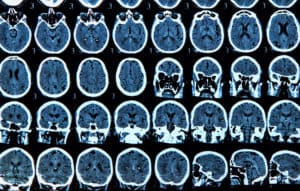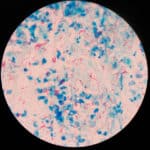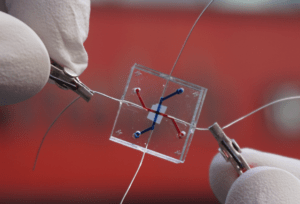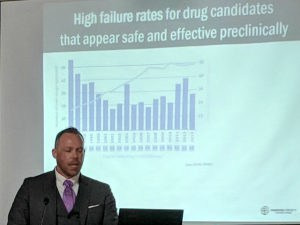3 April 2019
 World Parkinson’s Day (April 11th) aims to raise awareness of Parkinson’s disease (PD) and the desperate need for effective new treatments. A recent review authored by members of the BioMed21 Collaboration identifies advances that could be implemented to better understand pathological processes, improve disease outcome, and reduce dependence on animal models. Many people may not be aware of how animals suffer in labs, used for research into Parkinson’s disease, when the answers we need may lie with patient-centred research and not animal testing.
World Parkinson’s Day (April 11th) aims to raise awareness of Parkinson’s disease (PD) and the desperate need for effective new treatments. A recent review authored by members of the BioMed21 Collaboration identifies advances that could be implemented to better understand pathological processes, improve disease outcome, and reduce dependence on animal models. Many people may not be aware of how animals suffer in labs, used for research into Parkinson’s disease, when the answers we need may lie with patient-centred research and not animal testing.
For people, muscle tremors, or loss of fine control of movement, may be the first outward sign of Parkinson’s disease, but these motor symptoms are not the start. The death of dopamine-producing neurons in the brain ultimately cause the tremors, but the damage starts long before the tremors are apparent. Modelling this gradual loss of neurons is not possible in animals. Simulation of Parkinson’s disease in animals often uses injections of toxins directly into the brain. This destroys the dopamine-producing neurons, but the effects are instant and short-lived, compared to the slow progressive decline that occurs over decades in people. [Read more…]

 What do self-driving cars, solar airplanes and renewable energy have in common with the human heart? At first thought, not a great deal, yet a recent scientific endeavour called the
What do self-driving cars, solar airplanes and renewable energy have in common with the human heart? At first thought, not a great deal, yet a recent scientific endeavour called the  Organ-on-Chip in Development (ORCHID) is a European Horizon 2020 project that aims to capitalise on the innovative technology that is
Organ-on-Chip in Development (ORCHID) is a European Horizon 2020 project that aims to capitalise on the innovative technology that is  In November 2018, India joined other innovative economies working to replace the use of animals in laboratory experiments with the launch of the Indian Society for Alternatives to Animal Experiments (ISAAE) during the country’s second national conference on alternatives in New Delhi. Humane Society International, founder of the BioMed21 Collaboration, was a lead sponsor and keynote speaker at the conference, which created a platform for national and international scientists from various backgrounds to engage in discussions pertaining to the present and future of alternatives to the use of animals in research and testing.
In November 2018, India joined other innovative economies working to replace the use of animals in laboratory experiments with the launch of the Indian Society for Alternatives to Animal Experiments (ISAAE) during the country’s second national conference on alternatives in New Delhi. Humane Society International, founder of the BioMed21 Collaboration, was a lead sponsor and keynote speaker at the conference, which created a platform for national and international scientists from various backgrounds to engage in discussions pertaining to the present and future of alternatives to the use of animals in research and testing.